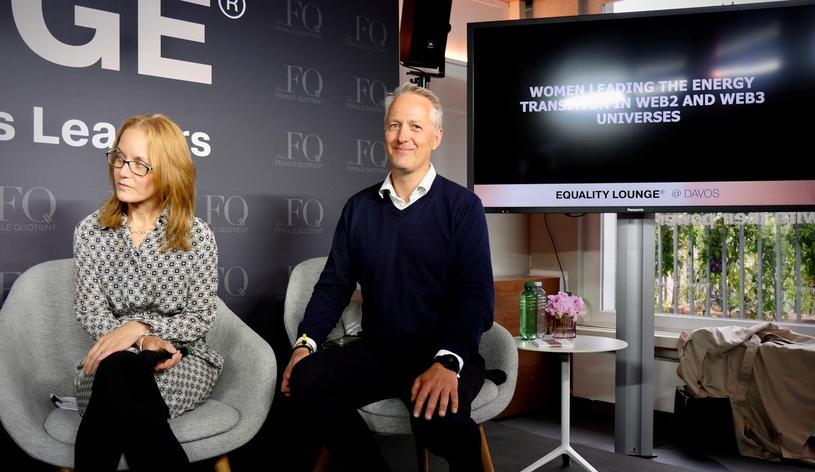
This year's Davos 22 was mainly focused on the recent geopolitical crisis and unlocking digital innovation for Net Zero. Leaders from all over the world gathered for the World Economic Forum annual meeting which is all about safeguarding our planet and people.
Energi.AI was present in Davos from 22 to 25 May. We attended a number of event hubs (Female Quotient, SDG Tent, Filecoin Foundation, Goals House) to showcase our platform and what we do to contribute to a net zero future.
You can check Anders H.Lier speak at the Female Quotient Equality Lounge here (Time stamp for the session is 3.06).

Key highlights World Economic Forum:
There were six topics that were mainly discussed during the conference:
Net-Zero Carbon Emissions:
Climate change was top of the agenda at Davos this year, as it has been the past few years. Experts discussed the ways in which we can rapidly shift to a low-carbon economy and prevent the damages caused by climate change. These suggested solutions include “scaling up existing clean energy solutions, developing new ways to make and store clean energy and reversing historical emissions to avert the climate crisis”.
Corporate Sustainability: How to measure and quantify the ESG impact. The Forum mentioned that it has developed metrics that offer a universal way in which companies can report on their corporate sustainability and produce verifiable and comparable data.
Technology Advancements: Metaverse, Crypto, Web 3 and blockchain were huge this year. The big discussion during The Forum was around how to build an economically viable, inclusive, and safe metaverse.
War in Ukraine: One major highlight of the Davos meeting was the conversation between Ukraine’s President and its foreign minister. The Ukrainian officials’ key message was that Russia should be made to pay extensively for their invasion
Global Recession: The International Monetary Fund forecasts global growth in 2022 at 4.4%, but these projections are being revised downwards due to conflict and the fallout from sanctions. The Managing Director of the IMF was particularly concerned about food price shocks, stalling action on the climate crisis and the slump in digital assets as major areas that dampen the global outlook.
The Future of Work: Discussions ranged from tackling skills shortages to the multiple benefits of investment in social infrastructure and redesigning organizational structures altogether. Another critical point raised was the need to re-design the future of work and proactively position us for attractive economic sectors of the future such as green industrial transformation and digital economy.
Although times have been quite turbulent in the world, I hope that our mission will always give us all the courage to continue fighting for what we believe in, and do whatever it takes to save this beautiful living planet of ours.
